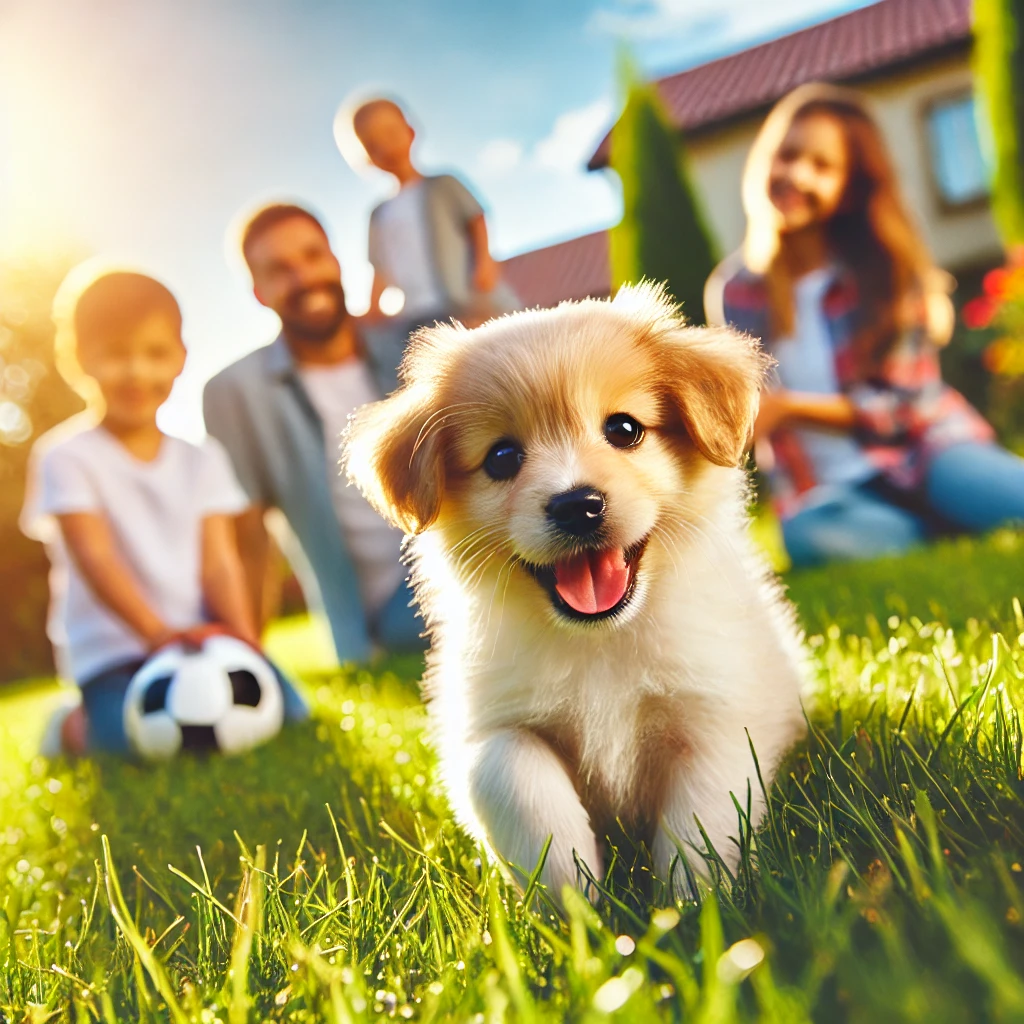Baby:czziykpdt-q= dog Bringing a puppy into your home is a joyous occasion filled with excitement and responsibility. Understanding the various aspects of puppy care is essential to ensure your new companion grows into a healthy and well-behaved adult dog. This guide delves into the critical elements of raising a puppy, offering detailed insights and practical advice.
Table of Contents
Understanding Puppy Development Stages
Puppies undergo rapid growth and development, each stage presenting unique needs and behaviors. Recognizing these stages helps in providing appropriate care and training.
Key Points:
- Neonatal Period (0-2 weeks): Puppies are born blind and deaf, relying entirely on their mother for warmth and nutrition.
- Transitional Period (2-4 weeks): Eyes and ears open, and puppies begin to explore their immediate surroundings.
- Socialization Period (4-12 weeks): Critical for exposure to various stimuli, aiding in developing social skills.
- Juvenile Period (3-6 months): Rapid growth phase where basic training should be reinforced.
- Adolescent Period (6-18 months): Testing boundaries; consistent training is crucial during this time. Baby:czziykpdt-q= dog
Selecting the Right Breed for Your Lifestyle

Baby:czziykpdt-q= dog Choosing a breed that aligns with your living situation and activity level is vital. Researching breed characteristics ensures a harmonious relationship between you and your puppy.
Key Points:
- Energy Levels: Baby:czziykpdt-q= dog High-energy breeds require ample exercise, while low-energy breeds are more suited to sedentary lifestyles.
- Size Considerations: baby:czziykpdt-q= dog Larger breeds may need more space, Baby:czziykpdt-q= dog whereas smaller breeds can adapt to apartment living.
- Temperament Traits: baby:czziykpdt-q= dog Some breeds are more sociable and family-friendly, while others may be reserved or independent.
Preparing Your Home for a New Puppy
Creating a safe and welcoming environment is essential for your puppy’s well-being. Puppy-proofing your home prevents accidents and promotes a sense of security. baby:czziykpdt-q= dog
Key Points:
- Secure Hazardous Items: Keep electrical cords, toxic plants, and small objects out of reach.
- Designate a Safe Space: Provide a comfortable area with a bed and toys where your puppy can retreat.
- Establish Boundaries: Use baby gates to restrict access to certain areas until your puppy is trained.
Nutrition: Feeding Your Puppy for Optimal Growth
baby:czziykpdt-q= dog Proper nutrition is fundamental to your puppy’s development. Selecting the right food and feeding schedule supports healthy growth and energy levels.
Key Points:
- Choose Quality Puppy Food: Opt for food formulated specifically for puppies, rich in essential nutrients.
- Establish a Feeding Routine: Consistent meal times help regulate digestion and behavior.
- Monitor Weight Gain: Regularly check your puppy’s weight to ensure they are growing at a healthy rate.
The Importance of Early Socialization
baby:czziykpdt-q= dog Exposing your puppy to various environments, people, and other animals during the socialization period is crucial for developing a well-adjusted adult dog.
Key Points:
- Introduce New Experiences Gradually: Allow your puppy to explore different settings at their own pace.
- Positive Reinforcement: Reward calm and curious behavior to build confidence.
- Enroll in Puppy Classes: Structured classes provide controlled socialization opportunities.
Basic Training Techniques for Puppies
baby:czziykpdt-q= dog Early training sets the foundation for good behavior. Utilizing positive reinforcement methods encourages learning and strengthens the bond between you and your puppy.
Key Points:
- Consistency is Key: Use the same commands and reward systems to avoid confusion.
- Short Training Sessions: Keep sessions brief to maintain your puppy’s attention.
- Patience and Persistence: Understand that learning takes time; avoid punishment-based methods.
Housebreaking: Teaching Your Puppy Where to Eliminate
baby:czziykpdt-q= dog Housebreaking requires patience and consistency. Establishing a routine helps your puppy understand where and when to eliminate.
Key Points:
- Regular Outdoor Breaks: Take your puppy outside frequently, especially after meals and naps.
- Praise Successes: Reward your puppy immediately after they eliminate in the correct spot.
- Supervise Indoors: Keep a close eye to prevent accidents and guide your puppy to the appropriate area.
Crate Training: Creating a Safe Haven
baby:czziykpdt-q= dog Crate training provides your puppy with a secure space and aids in housebreaking. When done correctly, the crate becomes a positive environment.
Key Points:
- Introduce the Crate Gradually: Allow your puppy to explore the crate without pressure.
- Make it Comfortable: Place soft bedding and favorite toys inside.
- Use the Crate for Short Periods: Start with brief intervals, gradually increasing as your puppy becomes comfortable.
Understanding Puppy Behavior and Communication baby:czziykpdt-q= dog
Recognizing your puppy’s body language and vocalizations enhances communication and strengthens your relationship.
Key Points:
- Tail Wagging: Can indicate excitement or anxiety, depending on the context.
- Barking and Whining: Forms of communication that may express needs or emotions.
- Body Posture: Observe for signs of fear, aggression, or contentment.
Health Care Essentials for Puppies
Regular veterinary care is vital to monitor your puppy’s health and prevent diseases. Establishing a relationship with a veterinarian ensures your puppy receives necessary vaccinations and check-ups baby:czziykpdt-q= dog.
Key Points:
- Vaccination Schedule: Follow your vet’s recommendations to protect against common diseases.
- Parasite Prevention: Implement measures against fleas, ticks, and worms.
- Spaying/Neutering: Discuss the appropriate time for these procedures with your veterinarian.
The Role of Play in Puppy Development
Playtime is essential for physical and mental stimulation. Engaging in interactive play strengthens your bond and aids in training.
Key Points:
Supervised Play: Always monitor playtime to prevent accidents or ingestion of inappropriate items. baby:czziykpdt-q= dog
Addressing Common Behavioral Issues in Puppies
Provide Appropriate Toys: Choose toys that are safe and suitable for your puppy’s size and chewing habits.
Interactive Games: Activities like fetch or tug-of-war promote exercise and learning.
Puppies often exhibit behaviors that can become problematic if not addressed early. Identifying and managing these issues is key to fostering a well-behaved adult dog.
Key Points:
- Chewing: Puppies chew to relieve teething discomfort. Provide chew toys to redirect this behavior.
- Jumping: Discourage jumping on people by ignoring it and rewarding calm behavior.
- Biting and Nipping: Redirect biting to toys and teach bite inhibition using consistent training methods.
Exercise and Physical Activity for Puppies
Exercise is crucial for a puppy’s physical health and mental well-being. Ensuring they get the right amount of activity helps prevent destructive behaviors.
Key Points:
- Age-Appropriate Activities: Avoid excessive exercise for very young puppies to protect their developing joints.
- Daily Walks: Gradually introduce short walks, increasing duration as your puppy grows.
- Interactive Play: Engage in games that encourage movement and mental stimulation.
Grooming and Hygiene for Puppies
Regular grooming keeps your puppy clean and healthy while also providing an opportunity to bond. Establishing a grooming routine early makes it easier as they grow.
Key Points:
- Brushing Fur: Brush regularly to prevent matting and reduce shedding.
- Bathing: Bathe only when necessary using puppy-safe shampoo.
- Nail Trimming and Ear Cleaning: Keep nails trimmed and ears clean to prevent infections.
The Importance of Mental Stimulation
Mental stimulation is as vital as physical exercise. Keeping your puppy’s mind engaged prevents boredom and promotes healthy development.
Key Points:
- Puzzle Toys: Provide toys that challenge your puppy to solve problems or find treats.
- Training Exercises: Incorporate commands and tricks into playtime.
- Exploration: Allow your puppy to explore new environments and scents safely.
Building a Strong Bond with Your Puppy
Developing trust and a strong bond with your puppy lays the foundation for a lifelong relationship. Positive interactions and quality time are essential.
Key Points:
- Spend Time Together: Dedicate time daily for play, training, and cuddling.
- Show Consistency: Maintain a consistent routine and approach to care and training.
- Reward Good Behavior: Use treats and praise to reinforce your puppy’s trust in you.
Recognizing Signs of Stress in Puppies
Understanding the signs of stress helps you address your puppy’s needs and prevent anxiety-related behaviors.
Key Points:
- Behavioral Changes: Look for signs like excessive barking, hiding, or loss of appetite.
- Physical Symptoms: Observe for trembling, panting, or pacing.
- Provide Comfort: Create a calm environment and consult a veterinarian if stress persists.
Preparing for Puppyhood Challenges
Raising a puppy comes with its challenges, but preparation and patience make the journey rewarding. Anticipating common difficulties allows for proactive solutions.
Key Points:
- Sleepless Nights: Puppies may whine or cry during their first nights at home. Comfort them gradually.
- Accidents Indoors: Expect mishaps during housebreaking; clean up accidents promptly without scolding.
- Consistency Over Time: Stay committed to training and routines despite occasional setbacks.
Transitioning Your Puppy to Adult Dog Life
As your puppy grows, their needs will change. Preparing for the transition to adulthood ensures continued health and happiness.
Key Points:
- Switching to Adult Food: Gradually transition to adult dog food as recommended by your vet.
- Adjusting Exercise: Modify exercise routines to suit your dog’s adult energy levels.
- Ongoing Training: Reinforce training to maintain good behavior as they mature.
Conclusion: Embracing the Joy of Puppy Parenting
Raising a puppy is a journey filled with challenges and rewards. With proper care, training, and love, your puppy will grow into a happy, healthy, and loyal companion.
Read Also: Shape:yl6axe4-ozq= pentagon








